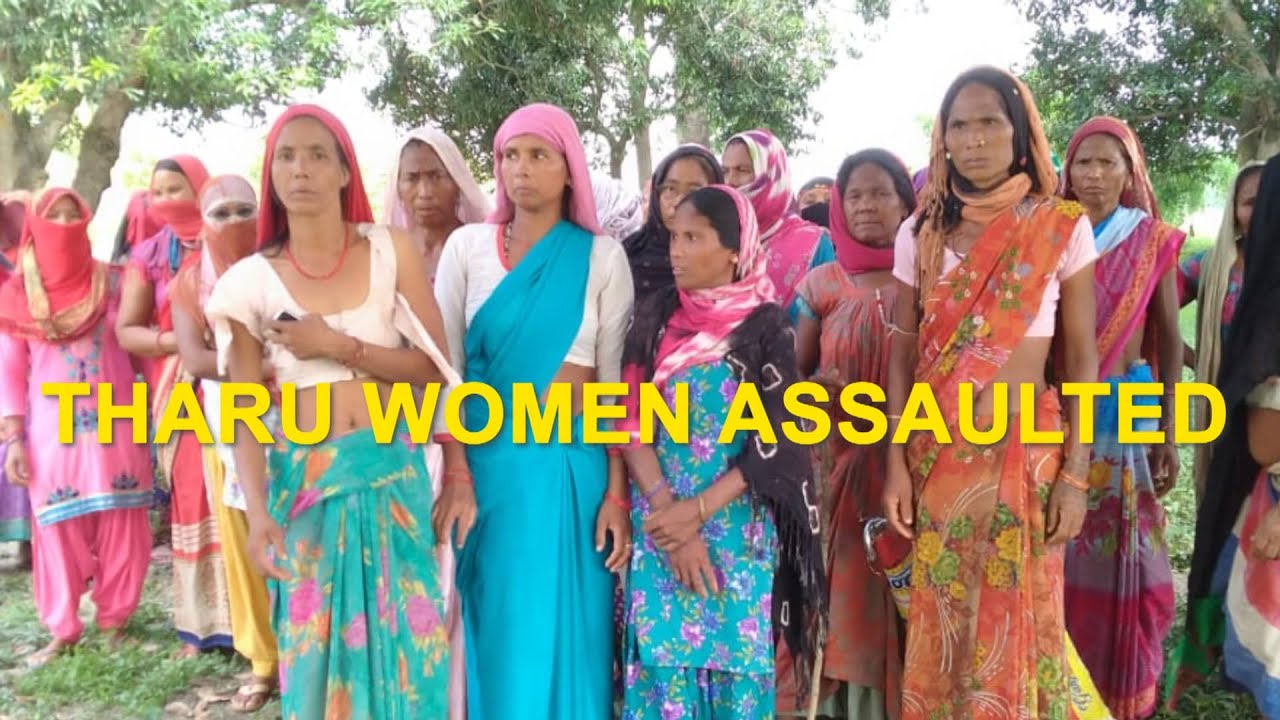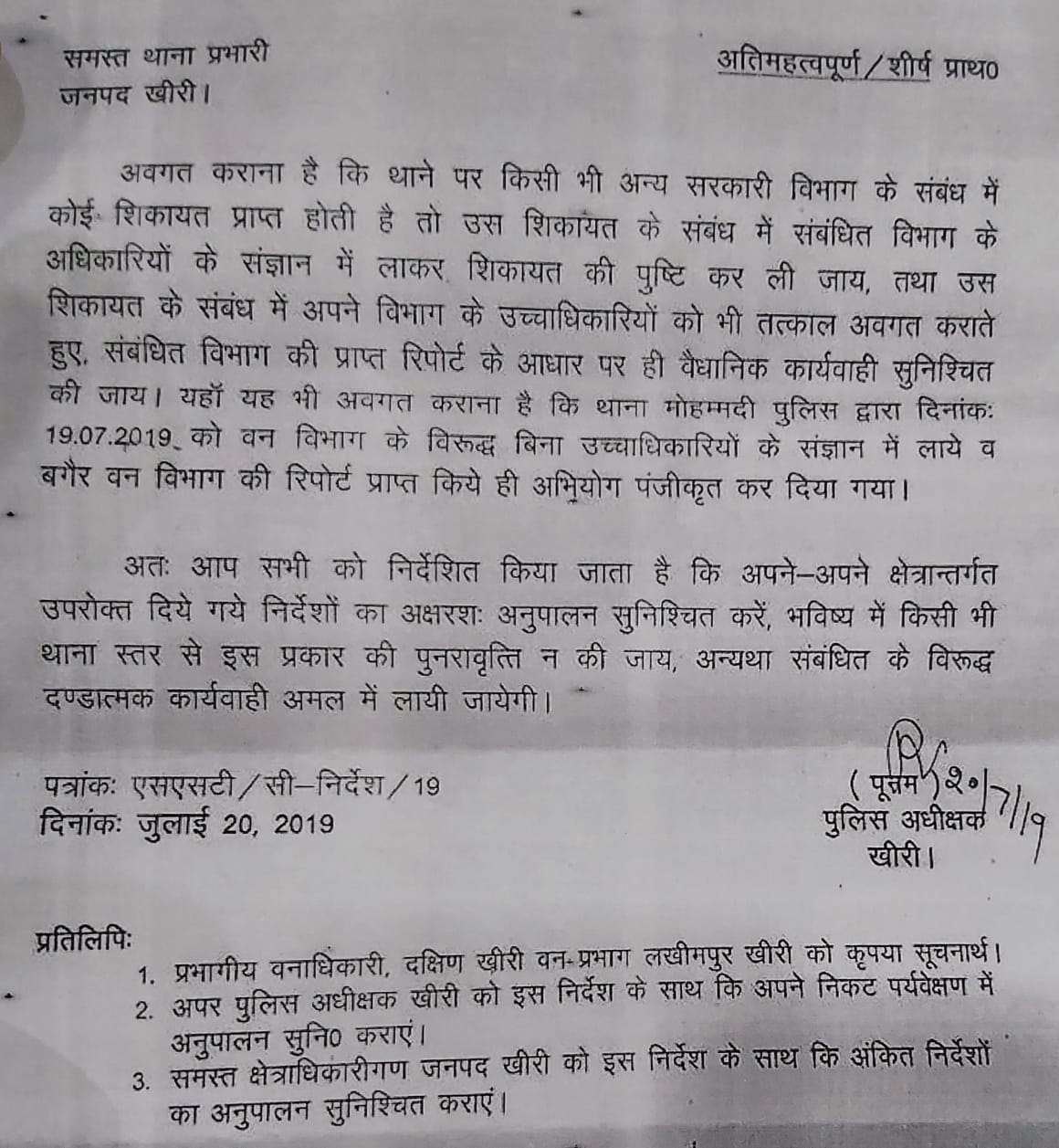
An unprecedented FIR has been lodged at the Gauriphanta Police Station in Lakhimpur Kheri, UP against forest officials for allegedly assaulting women of the Tharu community. The FIR has been lodged against forest officials Alok Sharma, Sunil Sharma, Nandu and Shankhadhar Bhatt, a policeman under various sections of the IPC including the SC/ST act. But this FIR has now prompted a fierce backlash from forest officials who have threatened to suspend work unless the charges are withdrawn.
The alleged assault came after days of tense standoff between the forest officials and the residents of Kajaria village. Videos and reports from 13 July onwards clearly show forest officials stopping villagers from collecting forest produce and digging deep trenches, ostensibly to prevent bullock carts from accessing the forest.
But these trenches, dug using JCBs have not only killed trees in its vicinity but stopped the drainage of rain water from the adjacent fields. The resultant water logging has destroyed crops of wheat.
Such calculated brutality from the forest officials comes alongside efforts elsewhere to alter the status quo in India’s forests taking cover of the COVID pandemic.
On Thursday, the crisis intensified when armed forest officials swooped down on the village, fired shots in the air, allegedly molested women and beat young people up.
This incident prompted the Tharu women to file an FIR against the officials and set in motion a chain of events that led to the Police Superintendent of Khiri to issue a hurried notice to all local police stations directing them to take permission from higher-ups before initiating action against government officials, effectively vetoing the possibility of any further action.

The fact that so many feathers have been ruffled is proof that lodging of the FIR is a significant event in itself. It is infact a significant victory for the brave Tharu women who have for long fought bravely for their rights against the forest department.
While the people of these villages have lived here for centuries, official records indicate evidence on paper dating back to at least 200 years. The community itself extends into Nepal with social ties like marriages common even across the international border. Historically a part of Khairagarh estate, these villages were handed over to British owners in 1904 under a deed of exchange between Rani Surat Kuar and the Secretary of State for India. In 1927, under the newly enacted Indian Forest Act, they were brought under the control of the forest department who now held unabridged powers over forest produce including timber and hence over the people who historically had worked the forests. In 1978 when Dudhwa Reserve Forest was carved out of this area, the Tharu people found themselves facing eviction. A long and bruising legal battle followed that only came to an end when the historic Forest Rights Act (FRA) was passed in 2006. Ever since the FRA 2006, in recognition of historical injustices meted out to forest dwelling communities granted them community right over their land, their run-ins with the forest department have intensified. And because the FRA 2006 gives unprecedented power to forest working women, it is not surprising that they find themselves at the receiving end of brutal attacks.
In 2012 thousands of women had tried to enter the forest with their bullock carts in a demonstration of the rights given to them by the FRA 2006. They were brutally attacked by the forest officials and policemen. Nevada Rana, a Tharu woman leader of Kajaria village was seriously injured. In 2019, Nevada Rana was one of the three women who, alongwith CJP and AIUFWP, filed an intervention in the Supreme Court to defend the FRA 2006.
That Tharu women now recognise their rights and are not afraid to participate in democracy must weigh heavily on the powerful men who treat the forest and its riches as their personal fiefdom, thus perpetuating the system of exploitation handed down by their colonial masters. The Tharu, who for centuries have borne the burden of land – first as bonded slaves under feudal kings, then as workers on British plantations and finally as adversaries of despotic forest rangers are now rightfully claiming what is theirs. This skirmish on the outskirts of Dudhwa National Forest with a few women of village Kajaria must be seen as a continuation of this fight for dignity.
